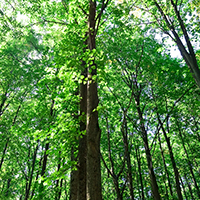
Provincial Growth Fund feasibility studies
Chief Economist Eric Crampton speaks about the Provincial Growth Fund and the $50 million that has been spent on feasibility studies.
Read more

Eric Crampton is Chief Economist with the New Zealand Initiative.
He applies an economist’s lens to a broad range of policy areas, from devolution and housing policy to student loans and environmental policy. He served on Minister Twyford’s Urban Land Markets Research Group and on Minister Bishop’s Housing Economic Advisory Group.
Most recently, he has been looking at devolution to First Nations in Canada.
He is a regular columnist with Stuff and with Newsroom; his economic and policy commentary appears across most media outlets. He can also be found on Twitter at @ericcrampton.
Phone: +64 4 499 0790

Chief Economist Eric Crampton speaks about the Provincial Growth Fund and the $50 million that has been spent on feasibility studies.
Read more

When Arthur Dent complained that he had not been informed of Council’s plans to bulldoze his house for a bypass, Mr Prosser, the Council officer, calmly told him that the plans had been on display for months - in the bottom of a locked filing cabinet stuck in a disused lavatory with a sign on the door saying ‘Beware of the Leopard’. Arthur found the plans there the day before the bulldozers showed up at his door. Read more

This week, the Chinese government celebrated the 70th anniversary of the Chinese Communist Party’s 1949 takeover of the country. Singapore’s Prime Minister Lee Hsien Loong’s letter to Premier Li Keqiang noted the opportunity to reflect on China’s transformation over the past 70 years, and on how China “lifted hundreds of millions of people out of poverty, raised their living standards, and created new opportunities for them to fulfil their aspirations.” The only problem is that everyone might be celebrating the wrong anniversary. Read more

Chutzpah really should be part of New Zealand's vernacular. I don't think I've heard it since moving to New Zealand almost 16 long years ago, but we do see a bit of it here. Read more

Finding that water flows downhill is not all that surprising. But it can be vey much worth knowing how fast that water moves, and how badly wrong we can be if we assume the waters are still. Read more
Yesterday, the government announced that New Zealand’s decile-based school funding system would be replaced, from 2021, by a funding formula tied to student risk factors. It noted that parents too often conflate a school’s decile rank with its quality. Read more

Douglas Adams' classic The Hitchhiker's Guide to the Galaxy offers salient advice about an awful lot of things. Don't listen to Vogon poetry. Read more

When Alice tried to recite one of her lessons while down the rabbit-hole in Wonderland, she thought only a few words had come out wrong. The Caterpillar corrected her bluntly: “It is wrong from beginning to end.” By contrast, the Cabinet Paper on the National Policy Statement protecting sensitive soils is not wrong from beginning to end. Read more

A new report has found that New Zealand spends 5.5% of our national income on schooling - the seventh highest in the OECD. Chief Economist Dr Eric Crampton spoke to Mike Hosking and said larger class sizes are not a bad thing - if you have good quality teachers. Read more

Let’s say you’ve bought non-refundable tickets for a movie, and then hear scathing reviews. It’s better to tear up the tickets and make other plans for the evening rather than bloody-mindedly watch the film just because you’ve already paid to go. Read more

The great legacy of the reforms of the 1980s and 1990s were the durable institutions that have since guided how we are governed. The Fiscal Responsibility Act set a framework for balanced budgets that has withstood many changes in government. Read more

Freshwater management is a tough political problem. Any substantive reduction in the nutrient load in too many of our rivers will require significant land use changes – and changes in wastewater practices in some towns. Read more

The very best part of grad school was the drinking. Well, not so much the drinking. Read more

A couple of years ago, I wrote a short report making the case that New Zealand is the world’s last sane place. Or, at least, if it’s going mad, it’s going mad more slowly than the rest of the world. Read more

The New Zealand Initiative has been a staunch supporter of the coalition government’s housing agenda. While we warned that Kiwibuild would not fix the housing crisis but rather risked diverting the government’s attention from more important reforms, we have had every confidence in Minister Twyford’s wider vision. Read more